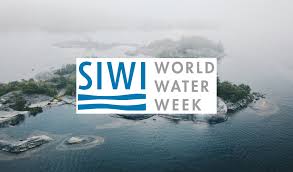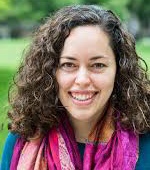News J-WAFS to Send Students to Stockholm
June 21, 2018

For six days every August, thousands of people flood into the archipelago city of Stockholm, Sweden – not just for the city’s delightful physical presence of water but for the opportunity to learn, share ideas, build partnerships, and develop strategies for the wise use of the world’s water resources. At the annual Stockholm World Water Week, academics, NGO and industry professionals, and government officials gather to present, discuss, network, and learn.
This year, with support from J-WAFS' Research Affiliate Xylem, Inc., J-WAFS has awarded a travel grant to two MIT graduate students to enable them to attend; Tiziana Smith, PhD candidate in the Department of Civil and Environmental Engineering, and Haleemah Qureshi, a 2018 graduate of the Department of Urban Studies and Planning, were selected from a number of applicants across MIT's schools and departments.

Tiziana was drawn to apply due to this year’s theme: “Water, Ecosystems, and Human Development.” With plans for a career in sustainable water management policy, she hopes to develop policies that balance the needs of people and ecosystems in light of a growing human population. She is already on the path with her current MIT research, which is to develop a methodology that quantifies potential sustainable food production in China under water and land resource restraints, to determine “how many people can China feed?” At Water Week, Tiziana is looking forward to sharing insights from this work with other attendees and growing her understanding of the important water sector issues that researchers and practitioners are currently focused on.

Haleemah was also attracted to the holistic approach that Water Week will be taking. Since she just graduated with an MCP this year, she is particularly enthusiastic about joining in the participatory events such as workshops and roundtables in order to test her knowledge, learn from experienced water experts, and network with other young professionals. She will be brining expertise in water affordability and urban utilities gained through her study of the causes of American water shutoffs. Motivated by the recent crises in Flint, Detroit, and Baltimore, she studied the financing and funding structures for Baltimore’s water utility in order to better our understanding of the history of ruptured utility-community relations.
Congratulations to Tiziana and Haleemah! We will hear more from them in September, when they will be sharing details of their experiences through reports from the field. Stay tuned!